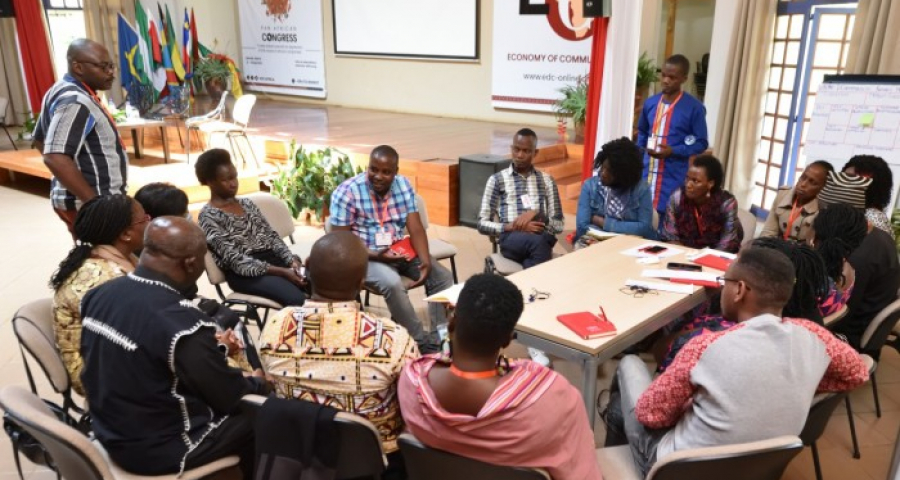It was the first grand meeting since the Pan African Congress held in Nairobi Kenya in May 2022 and although online, one could see a sense of enthusiasm to meet again as participants exchanged pleasantries.
by Godric Mbunya
A total of 26 students, researchers, and young entrepreneurs from over 11 countries; Cameroon, Nigeria, Burkina Faso, Uganda, Benin, Senegal, Ivory Coast, Togo, DR Congo, Madagascar, and Syria attended this anniversary meeting. A local event was also held in Madagascar with over 80 participants.
Participants took turns with delight in sharing their activities within the last year and going forward. Across many of the African countries present, a series of projects including training of young people on income generating activities, formation of young entrepreneurs at the various incubation centres, assisting the vulnerable, planting of trees, engaging in other activities with the Economy of Francesco to taking vital steps to encourage more research on the Economy of Communion were shared.
In reaction to the projects currently being executed across the different countries, more concrete steps were proposed like having the research works shared across all incubation centres on the continent and published on multiple platforms, hence more reach. There was a need to stress that the coming into existence of other social business models as the Economy of Francesco, shouldn’t relegate the EoC’s importance.
A video presentation on Chiara Lubich’s motivation, when she founded the EoC in May 1991 in Brazil, further stimulated participants, reawakening the commitment made over the years and strengthening the zeal to continue adhering to the Economy of Communion. Andrew from Nigeria shared his experience about how he successfully turned his company into an EoC business. He added that all shareholders and the board of directors were in agreement and are currently implementing the EoC business guidelines.
With profound momentum, the prospects for the future were discussed. It was an interactive moment with orientation from Steve and Nonye, to come up with the challenges that exist today and how to overcome them. Based on the various projects already being carried out, two key challenges were identified; theneed for more entrepreneurs with concrete and viable businesses which have formal structures and more scientific works by researchers. Proposals such as encouraging communion among the existing EoC entrepreneurs, encouraging more young entrepreneurs to join, and creating avenues for local fundraising schemes thereby increasing available micro-credits for startups. This will enable the erection of more business structures. Equally, harnessing the potential of the many young African economists currently pursuing their studies at Sophia University Institute in Italy and other institutions to write more articles, papers, and theses on the EoC was identified.
All in all, it was a rich moment of dialogue and sharing among the participants. An engagement was made to regroup once every two months to share strides made as well as challenges so that appropriate solutions would be sorted together. It was also widely accepted to be the most effective way to check progress while going ahead. We ended the event, joyfully by singing a happy birthday to EoC and “cutting” the virtual cake.








